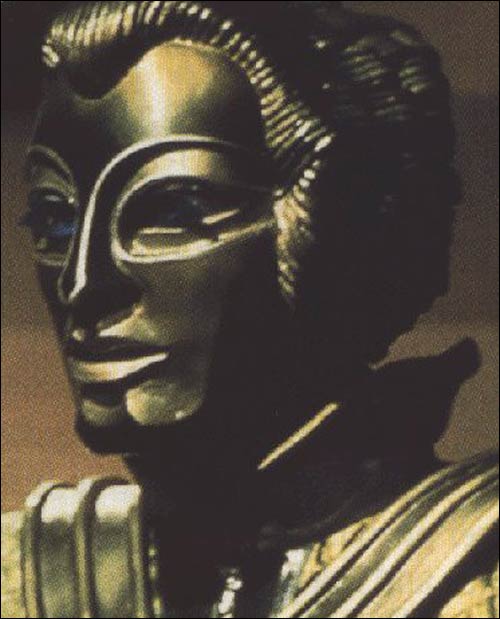Genesis of the robots - how a Czech word invaded the English language
I've written before about how Karel Capek's play, "Rossum's Universal Robots" was the first science fiction television production in the UK, and introduced the word 'robot' to the English language.
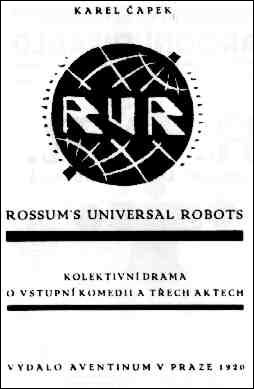
I was interested to find out how quickly the concept spread to the UK from the play's inaugural performances in Prague, and so I had a dig around in The Guardian and Observer digital archive.
It looks like the first mention of the term is in The Observer, on Sunday October 23rd, 1921. It features in a review of the play itself, titled "Man and machine - strange Frankenstein play at Prague".
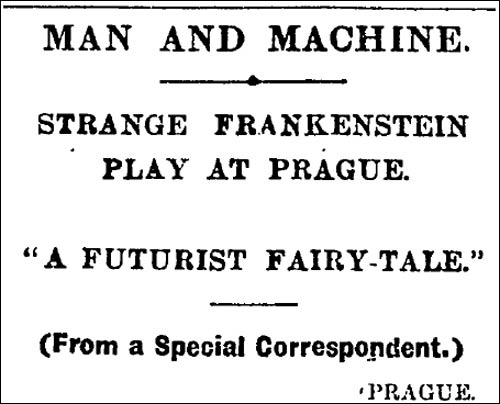
Actually this isn't quite the first mention of 'robot', as throughout The Observer article the "hands" or "manufactured men" are referred to as 'roboter'.
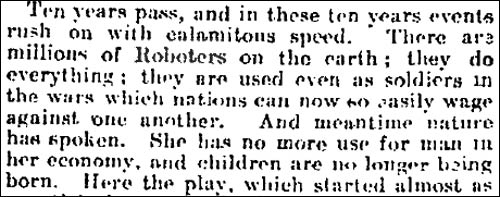
The first time 'robot' is used appears to be in a Guardian review of an English language production of the play, some 18 months later in April 1923.
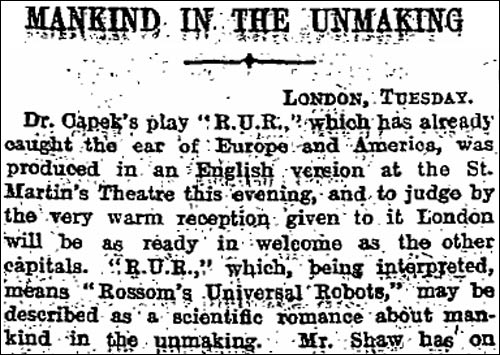
It only takes another month for the term to have transferred into political discourse, in a May 1923 Guardian essay by Evelyn Sharp entitled "The robot father - motherhood and the state". It examines the debate about the role of gender in raising children, suggesting that:
"The Robot boy who would not be seen wheeling the perambulator or kissing is mother in public is father to the Robot man who discusses the question of family endowment at a conference or in Parliament as though every family were divided into two sections - on the one side the father who pays and can withhold payment, on the other side, the mother and child."
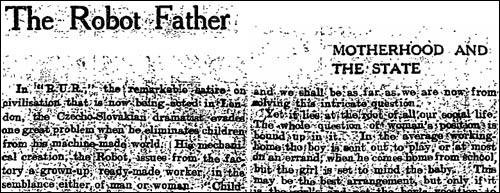
A slightly more curious mention of the term comes in July 1923, in a report on the Champion Polo Cup, stating that 'Robots beat Indian Tigers' in the final. I've been unable to find any corroborating evidence as to whether this was just an odd nickname, or a genuine triumph for metal men against feline carnivores. The names of the winning team, however, suggest the former rather than the latter.
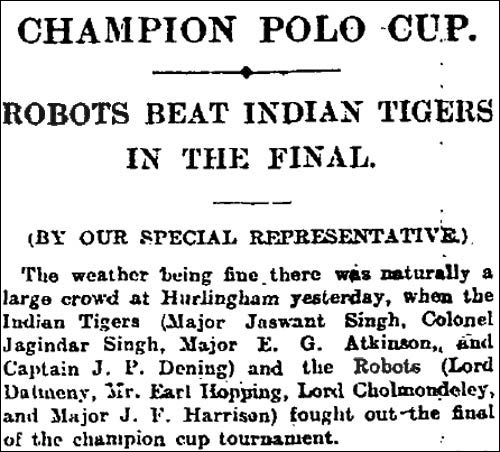
The majority of mentions of the word 'robot' in the two papers during the 20s were directly in connection with Capek's play, but in 1927 the word began to be employed to describe an 'ingenious' new invention about to hit the streets of London - the 'robot policeman'. We know the modern equivalent in the UK as 'traffic lights', but in some places in the world, South Africa, for example, they are still called 'robots' - and my wife continues to use the term in that way in the UK.
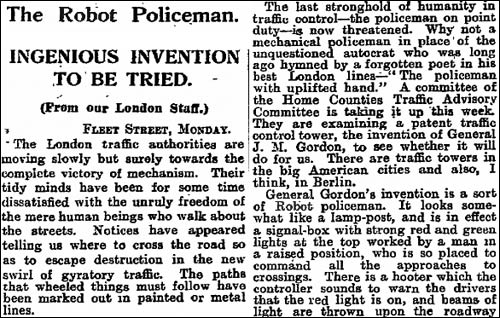
For me it is nothing but testimony to the power of the ideas in Capek's play that 'robot' as a word so rapidly transformed from a curiosity in foreign theatres, to a shorthand for a series of political and social ideas, and began to be used as a nickname and picked up to describe new inventions.
